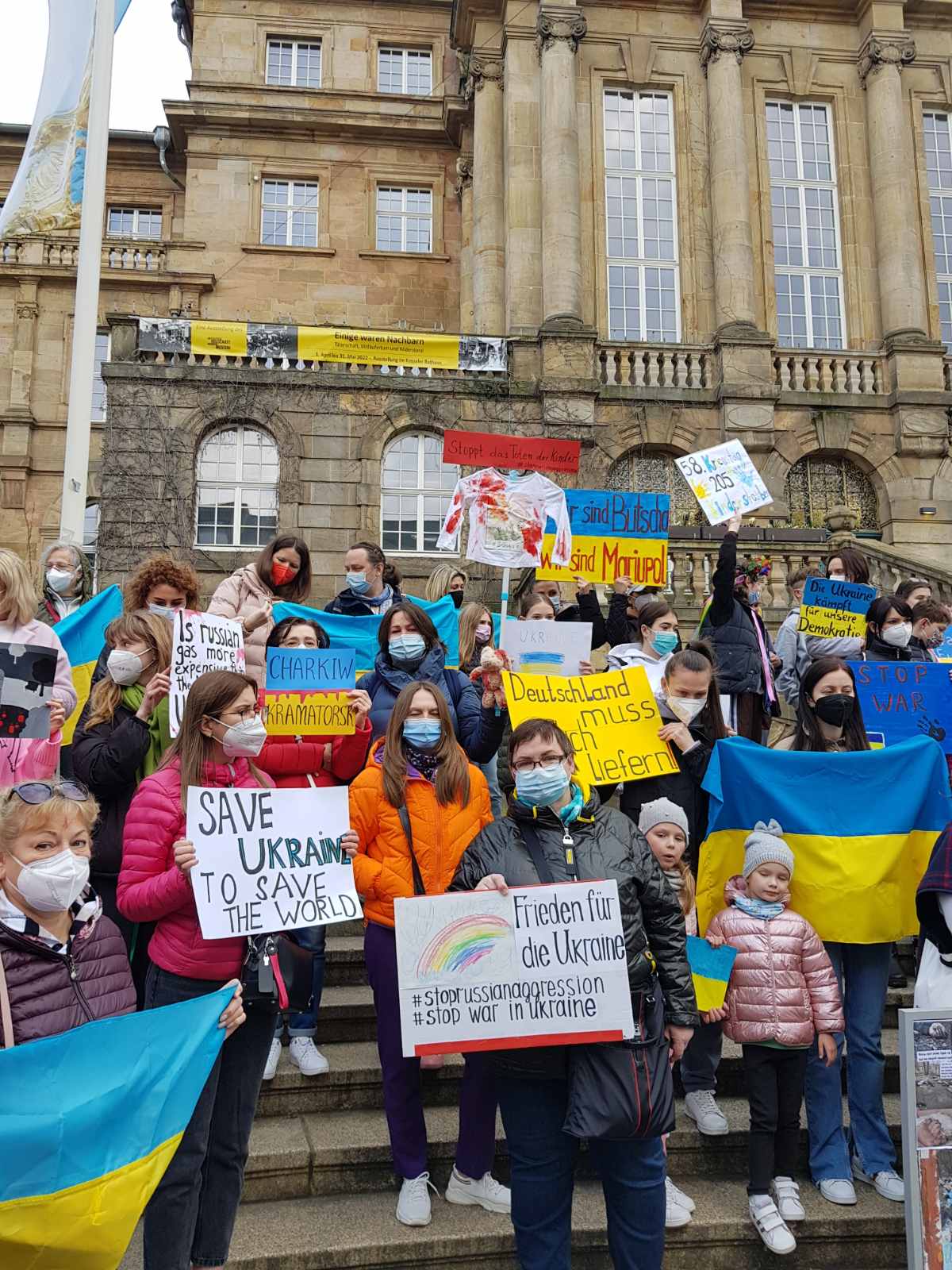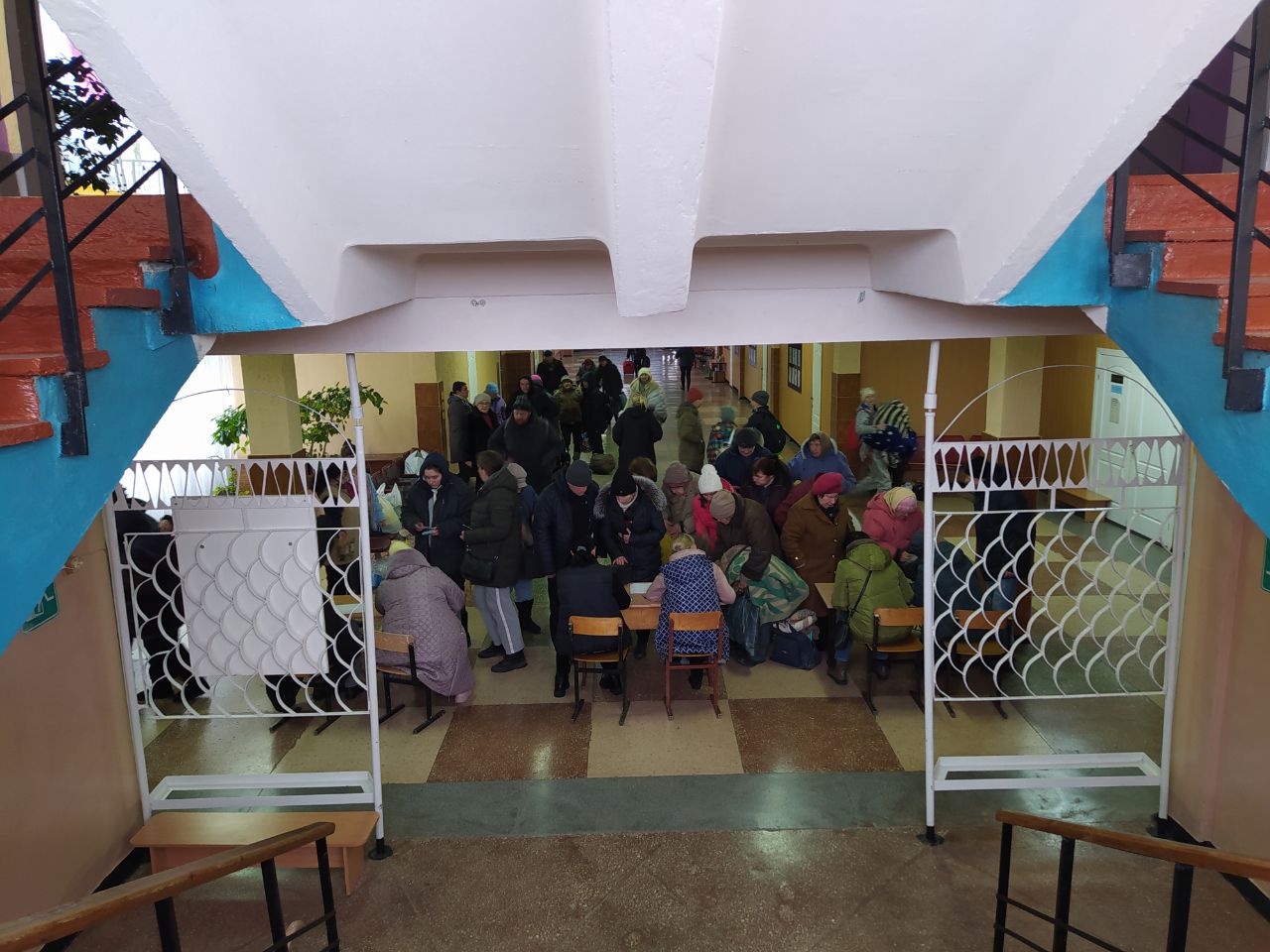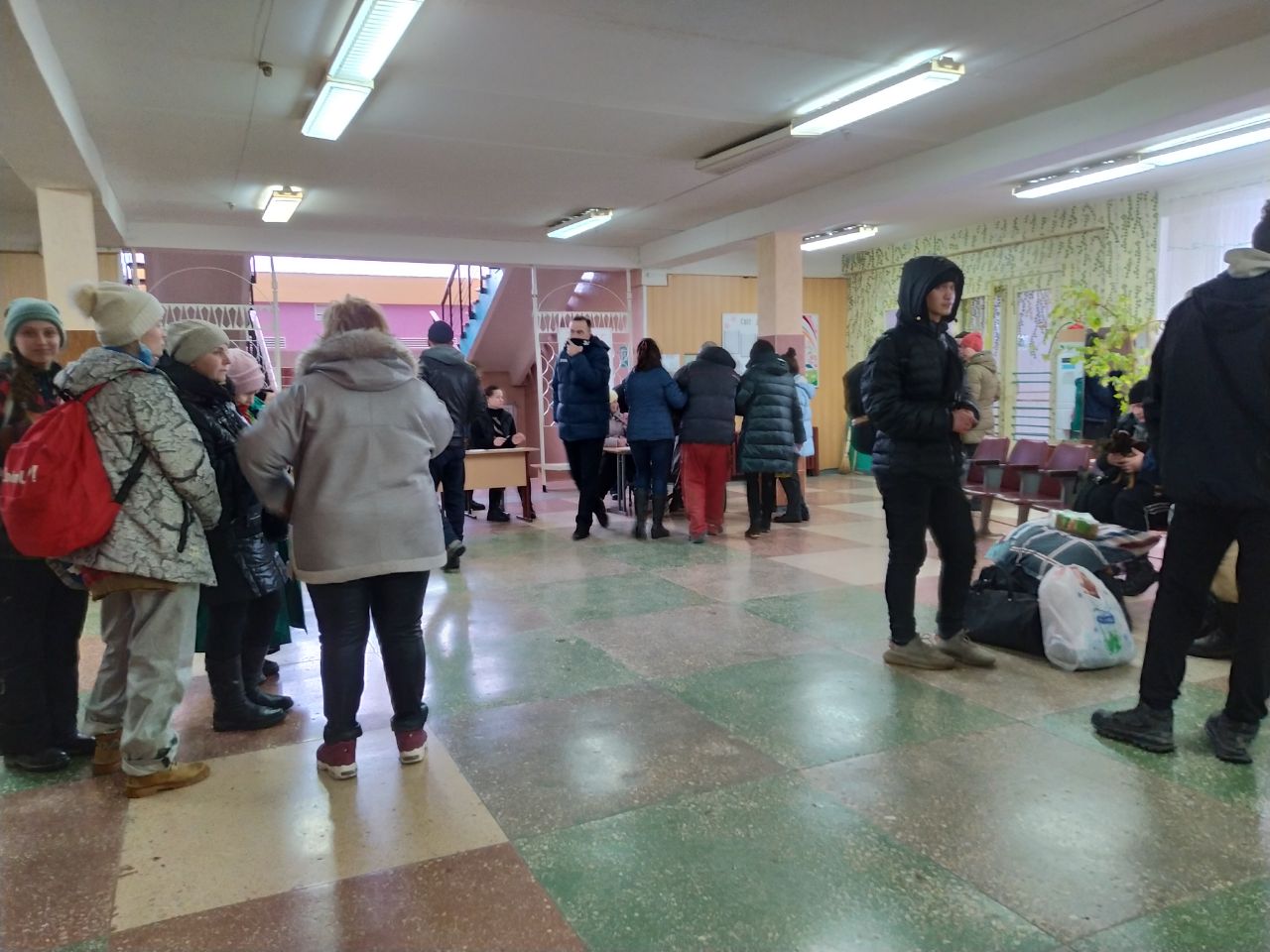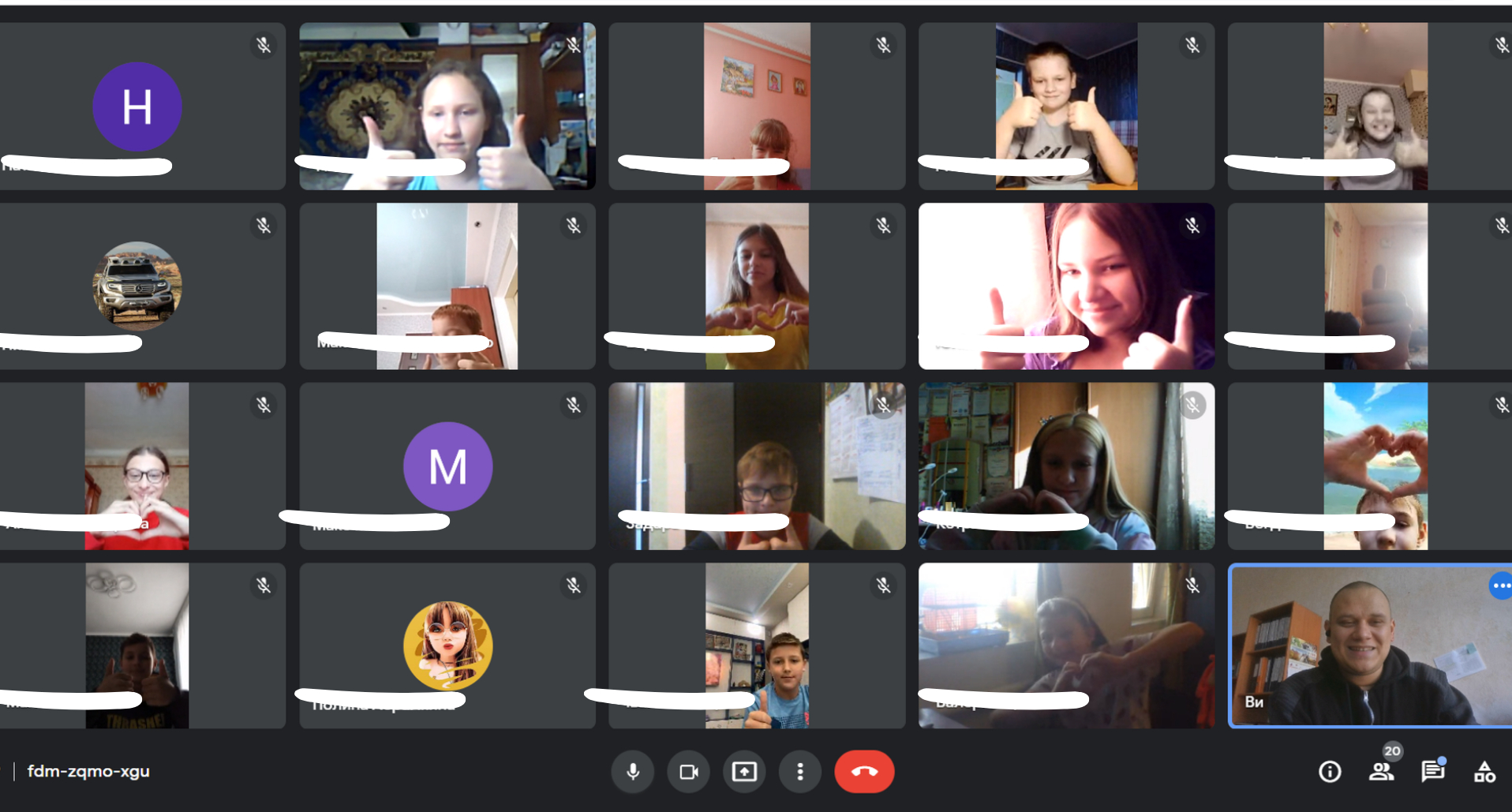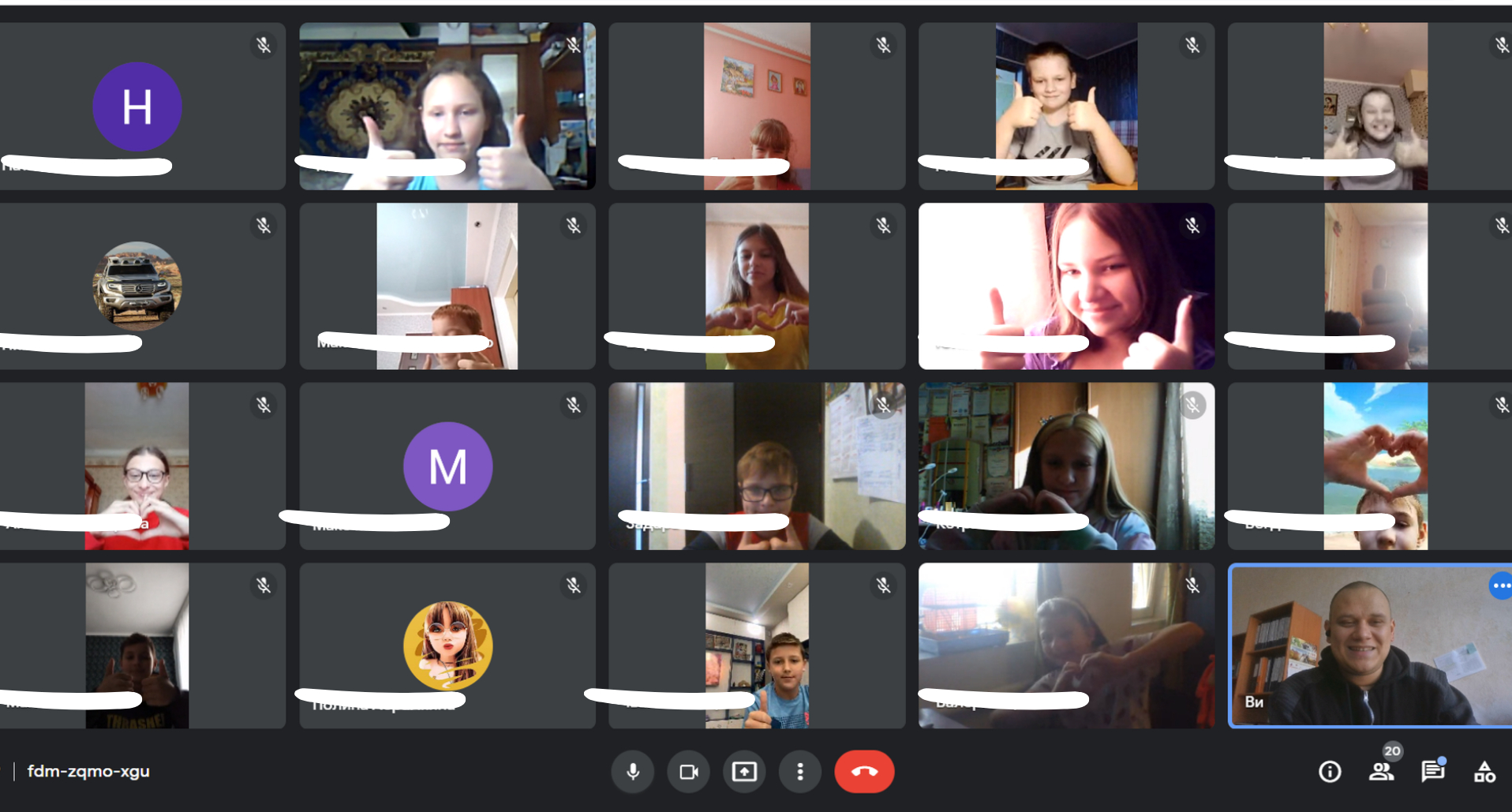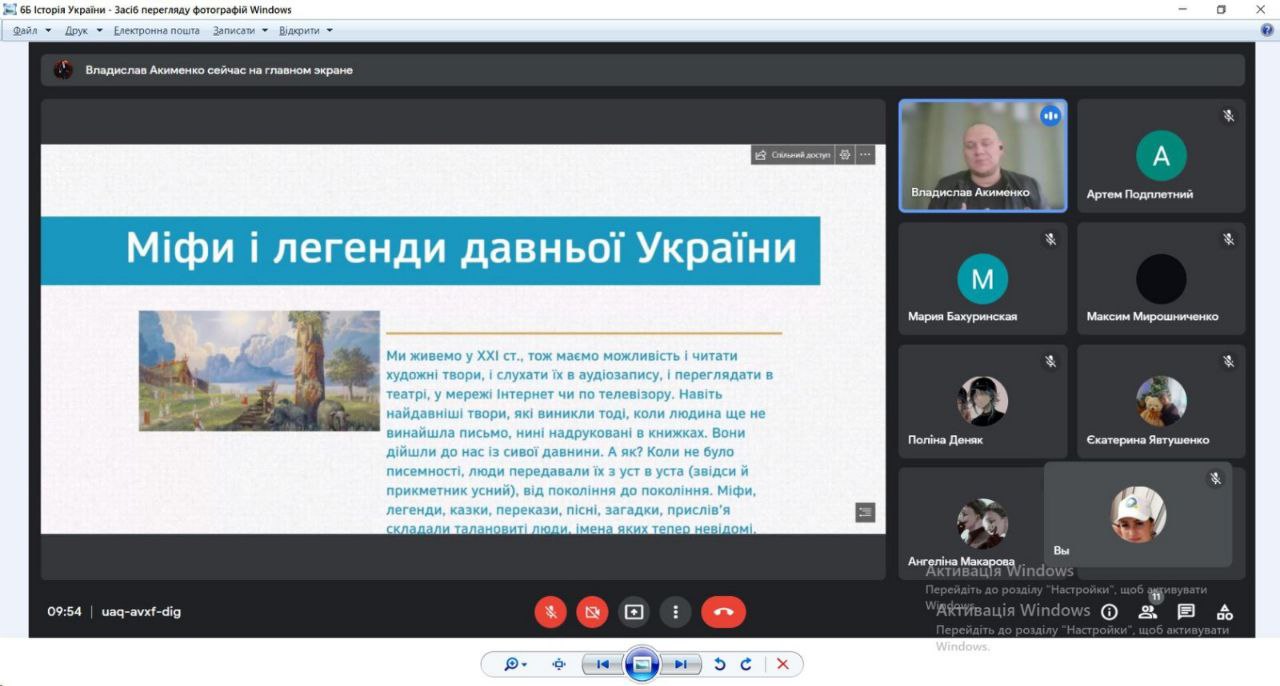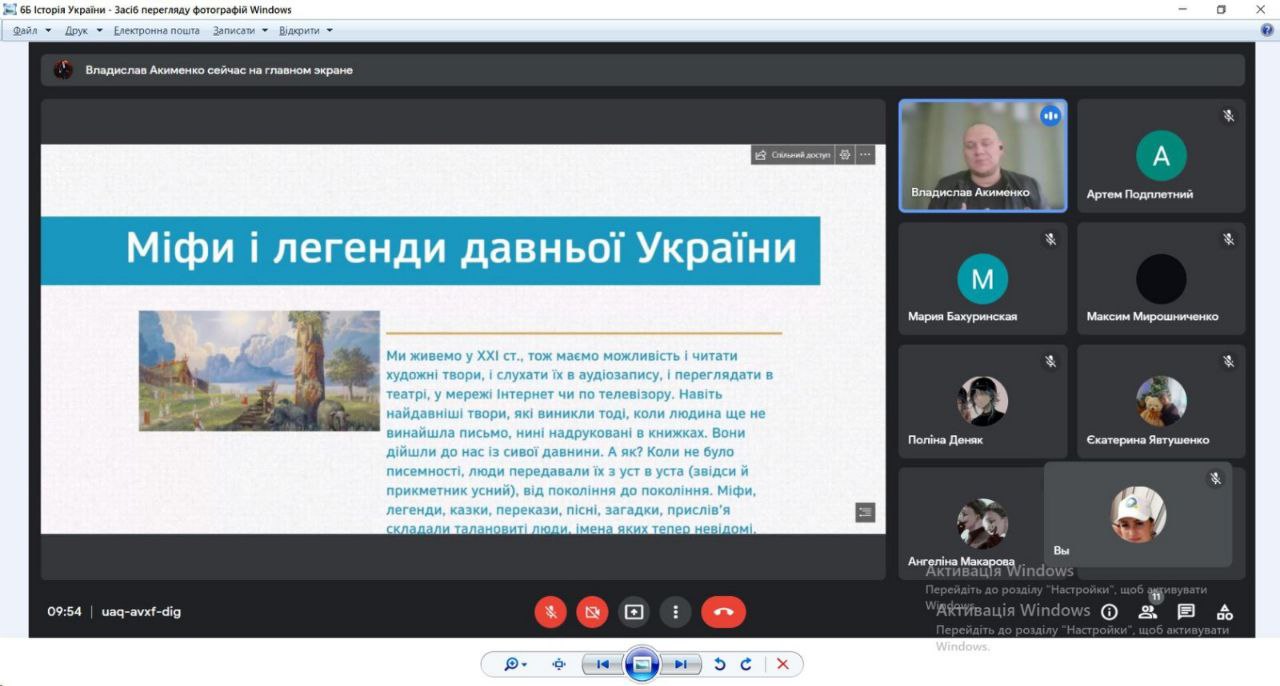Interview 7. Educational Outpost. Vladyslav Akymenko
Under conditions of war with russia, Ukrainian teachers show great courage: even in front-line communities, they continue working with the children. Moreover, educators are experimenting and coming up with creative solutions to help and support their students. Vladyslav Akymenko, a history and geography teacher, and a consultant at the Center for Professional Education of Teachers in Lozova, Kharkiv Region, tells us his story. In his lessons, he uses interactive games and encourages children to view history from different angles.
The main lesson
For me, the main lesson was that you have to be prepared for anything and that the future is impossible to predict. However, we have the opportunity to create this future, and someone can even become part of the future. Today, you have to experiment, be yourself, and look at yourself from a completely different perspective. You need to believe, inspire and change for the better every day. After all, as the war shows us, there are no restrictions; there is a whole world out there, and the future lies within each and every one of us.
I feel proud of every Ukrainian woman and man who has not given up but continues to provide support and bring our victory closer. For example, my friends went abroad, but they didn’t want to stand on the sidelines; they are spreading the truth about the current situation in Ukraine. They told me that when they arrived in another city, in another country, the first thing they did was to find out about support activities for Ukraine, and only after did they start looking for housing and other opportunities.
A detective story with a happy ending
The ongoing war is reminiscent of the novels by Agatha Christie, with their main character, detective Hercule Poirot. You know, they are so complicated, full of suspense; the plot changes rapidly, and one can’t predict what will happen next. It’s the same with us now – you don’t know what will happen next, where the next missile will strike and how the air raid will end. But, the key thing is that in those novels the truth always wins, and the guilty are always punished. And I hope that it will be so in this war.
Nature inspires:
Like before the war, my inspiration lies in nature. Before, I would organize outdoor lessons in the warm seasons. For I believe that this is how we can open the world to children and not shackle them within the classroom walls. I adore rain and nature renewing itself after winter. I am sure, just like all of us, that Ukraine will flourish after the war and will become even richer and happier.


In the novels by Agatha Christie the truth always wins, and the guilty are always punished. And I hope that it will be so in this war.

At the front
Missile attacks pose a major threat to our community. The invaders launched more than ten airstrikes on Lozova, and about 20 missiles were fired at the city. They damaged more than 200 private houses, the railway and the power station infrastructure. Unfortunately, civilians were killed and wounded.
Despite the attacks, Lozova is considered a kind of southern outpost in Kharkiv Region for internally displaced persons, mainly from Donetsk, Luhansk, and Kharkiv Regions. We hosted more than 5,000 people, many children and babies. Hostels and shelters are equipped, and caring locals are also willing to give shelter. During the active stages of the evacuation, more than 2,000 people passed through the railway station per day, and volunteers worked tirelessly at the station.
Educational front
Russian missile strikes caused serious damage to the educational infrastructure of Lozova in Kharkiv Region. According to the City Department of Education for Youth and Sports, as a result of one missile strike on May 20, eleven educational institutions were damaged, including five schools. Due to the dangerous situation, Lozova teachers and schools work online.
To help teachers in Ukraine continue their work during the war, the EdCamp Ukraine community launched a crowdfunding campaign to raise funds for computer equipment and Internet access for teachers who lost their pedagogical equipment in the war. Also, the funds will be allocated for psychological support for teachers and the organization of conferences where they will share their pedagogical experiences during the war. Both foreign colleagues on the GoFundMe platform and Ukrainians on the EdCamp Ukraine page can join the campaign by attaching the comment My War. Lessons to the payment.
The road of life
When we were told that a “green corridor” was to open from Izium, the bus drivers drove there on the very first day. It so happened that the enemy did not agree to these “corridors” and the drivers had to return. But, fortunately, the next day, the “green corridor” opened, and the IDPs from Izium arrived in Lozova.
All of us, Lozova teachers, got together and prepared to host the IDPs from Izium. My colleagues turned the classrooms and laboratories into comfortable rooms; they brought everything they could from their homes, ready to help and support the IDPs. At night, they remained at the school so that the people would not feel lonely.
In the beginning, our biggest issues were with medicines, essential goods, and sanitary products. Before the war, I worked with various international organizations, so I contacted them right away. We then collected all the necessary information, and applied for humanitarian aid, from heaters to medical supplies and sanitary products. We have already received them.
Education under fire
For the most part, difficulties with the educational process arise due to shelling and missile attacks. For example, there was no electricity and, correspondingly, no Internet connection when the missiles struck the city.
However, our educational community had already completely adapted to the new realities during the quarantine. Today, each institution has done its best to unify and improve its online work system. Each school has a unified platform for publishing timetables and links so that it’s easy for children to work at home. Since many children are leaving their homes, the teachers are again looking for any possible source of communication; they even make personal calls. Indeed, it’s the only way we have, and we are doing our very best so that all the students, wherever they are, have access to knowledge.
For my lessons, I also collect articles, videos, and tasks. One day, I thought of creating a mini-website for each lesson, so that the children would plunge right into the topic, into this or that world, so that they could navigate and get specific information.
From antiquity to modern times
I teach history, so every historic event should be comprehended from multiple angles and perspectives. I allocate almost a third of the lesson to discussions, looking for answers, and solving problems. I enjoy seeing the students making their own conclusions and discussing topics together. It is especially great when internally displaced children participate in the classes. In this way, we get a kind of interregional dialogue with different viewpoints.
To engage children, I always look for trivia that connect different states of the Ancient World. For example, the influence of Rome on Ukraine and vice versa, back in the early years of the Common Era. Also, in ancient times, modern Ukrainian lands were inhabited by different tribes: the Sarmatians, and later the Slavs. It was they who, despite the size of the Roman Empire, became a threat to Rome’s borders. I think that modern Ukrainians will also become a threat to our enemies.
I often use an interactive game format to conduct practical classes. There are plenty of applications that allow you to organize this event. For example, for Year Six we had an adventure game and tried to unravel the mysteries of Ancient Greece.


For the most part, difficulties with the educational process arise due to shelling and missile attacks. For example, there was no electricity and, correspondingly, no Internet when the missiles struck the city.

Don’t forget about reforms
War is war, but the New Ukrainian School must be incorporated into basic education. Therefore, when holding a regional EdCamp in Lozova, we will focus on the following topic – Navigation through the New Ukrainian School in primary school: building bridges, driving changes, setting trends. We will strive to raise all the issues relevant to primary school teachers, such as assessment on a day-to-day basis, the implementation of a daily sports program, new textbooks, and the proper use of electronic applications contained in such textbooks. Of course, we will discuss the effects of the pandemic and the war on Ukrainian education.
If we succeed, we want to create a media project: an interactive map of our community -Education foresight. New ideas in a new school. In essence, it means that everyone will be able to put a geotag on the map and share their stories. Afterward, all conference participants will get a link to this map with contacts so that they can subsequently reach us and share their experiences.
Symbolic places
After the war, I want to go to Nova Kakhovka in Kherson Region, where I have friends from one of the educational projects. Recently, I saw on the news that the occupation authorities in Nova Kakhovka removed the Ukrainian coat of arms, which stood at the entrance to the city and welcomed visitors. And then, I had an idea: a large team of teachers and EdCamp fans should come and restore that Ukrainian symbol of freedom. It will be highly symbolic. It seems to me that now, wherever the EdCamp community is present, there will also be symbolic events. Every corner of Ukraine has its history; every place has something to tell us about its resistance to the invasion.
Creativity during the war
I would like to share with my foreign colleagues the experience of steadfastness, courage, and endurance of Ukrainian teachers. When the country was on the verge of chaos, the teachers did not stop working, did not stop teaching children to be successful, and, above all, merciful; they did not stop being mentors, friends, partners, helping the kids to find ways and go even further. Teachers and psychologists teach children to adapt and create a new world, and thus shape their future.
In my current position, I analyze and monitor distance learning in some schools. You know, I’m so amazed not only by the quality of the teaching material, especially in the synchronous mode, but also by how teaching motivates children, and how uplifting it is to them. In some schools, the teachers even learned how to make emoticons and stickers in the Telegram app based on local motifs. Teachers, who never thought that someday this would be possible, are today creating, designing, and establishing a connection with children. I have seen teachers conducting lessons in dormitories and storage facilities in the form of fairy tales in order to cheer the kids up so that they can remain children for as long as possible.
Text – Halyna Kovalchuk.
The interview series My War. The Lessons was prepared with financial support from the Black Sea Trust for Regional Cooperation – a project of the German Marshall Fund of the United States.
The views and opinions expressed are those of the author and do not necessarily reflect the official policy or position of EdCamp Ukraine and the Foundation.




